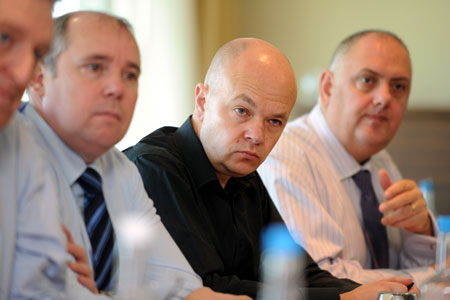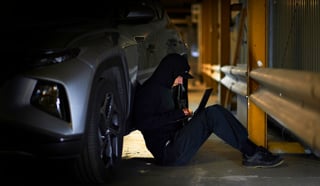Do you have additional processes for new starters?
Neil Shaw: Last year we carried out 2,500 driver assessments including an online filter to employ 1,100 people. We look at driver history, DVLA checks, we do not recruit anyone that has more than three points and we check licences every 12 months.
People might say it is over the top, but we have a good customer relationship record and the standard of driving has gone up while staff turnover has come down.
How do you manage multi-user vehicles?
Mike Revell: We have two or three drivers per vehicle and we don’t see them for a long time so the vehicles can suffer a lot of damage. We fine drivers £100 per incident and we charge the last driver we see when the van has the damage. Drivers have smart phones so they can take an image of any damage to prove it was there when they took on the vehicle.
Chris Roberts: This year we have tried to raise awareness of the issue with managers. One of their bonus objectives is to reduce accidents. We have also got our postmen to do risk assessments while on walks or in vans and feed that back to us.
How do you achieve a balance between safety and productivity?
Neil Shaw: We ensure our routes are realistic; it’s human behaviour for people to try and find a shortcut. The safety of people is paramount: it improves the cost efficiency of the business, but it’s a fine line between education and people making their own choice. We educate and develop their skills so they can make an informed choice. And we tell them that it’s better to get to their destination late than not at all.
Ian Hovell: There is a role for managers not to put that extra drop in to the route: there is a point when you reach a threshold.
Helen Bolton: In the worst case scenario of serious accidents, if it is shown that the person was forced to do extra mileage, then the line manager will be in the dock. It’s about getting this message across.
Neil Shaw: Our managers do the same training as our drivers. They go out on the routes and they receive a slightly higher level of workshop training on road risk and legal responsibilities. This process improved lots of things.





















Login to comment
Comments
No comments have been made yet.